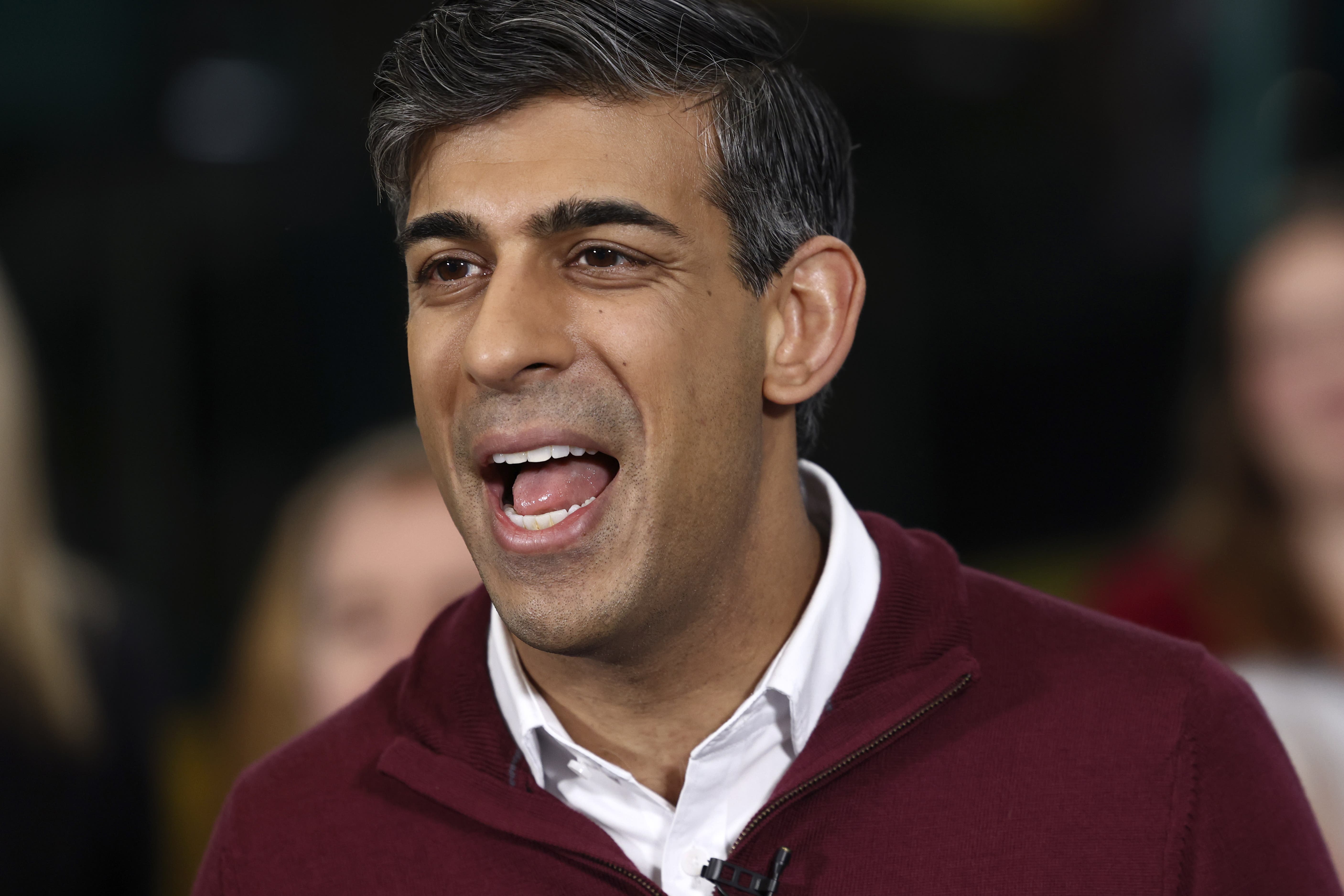Why Tory MPs are jumping off Sunak’s sinking ship
An alarming number of Tory MPs are giving up their seats, galvanised by the prospect of being ejected from them at the general election. But, says Andrew Grice, they are also frustrated by an unsympathetic leader who is in denial about the party’s prospects


What do the resignations of ministers James Heappey and Robert Halfon, who are leaving the Commons at this year’s election, tell us? Firstly, that Conservative MPs have little confidence in Rishi Sunak’s ability to retain power; 63 of them, almost one in five, have now announced they will stand down and there are more to come.
When a party knows it is heading for defeat, the number of MPs who quit is higher than the average total of 87 from all parties at recent elections. Some 75 Tories abandoned ship before Labour’s 1997 landslide, while 100 Labour MPs stood down before the party lost power in 2010.
It is perhaps no coincidence that Heappey’s Wells constituency is under threat from the Liberal Democrats, and Halfon’s bellwether seat of Harlow is a key Labour target.
It’s getting harder for Sunak to keep up appearances and claim his party can somehow defy political gravity and hold on to power. Experienced ministers are walking out, leaving the newbies little time to get up to speed before the election. Nick Gibb, a rare breed in being a long-serving, effective minister – also at the Department for Education – has already gone.
There is another message in the departures of Heappey and Halfon. While professing loyalty to Sunak in their resignation letters, both politicians are long-standing campaigners for the government to boost spending in their departments – Heappey on defence, and Halfon on education – and are frustrated by the lack of resources. In his final appearance at the dispatch box yesterday, Heappey, one of the government’s best communicators, called for its goal to raise the defence budget to 2.5 per cent of GDP to be “achieved urgently”. His boss Grant Shapps lobbied for an increase in this month’s Budget but was rebuffed.
Sunak is unsympathetic, as he showed when he was quizzed by the liaison committee of senior MPs yesterday. He refused to commit to a timeline for the defence spending target and played the stuck record of calling for the public sector to become more efficient. This is no answer to the funding crisis in many areas, such as local government, social care, prisons and the courts, and that’s before the need to raise defence spending in a dangerous, volatile world.
The prime minister is in denial. The government’s spending plans include £20bn of (deliberately) unspecified cuts that ministers admit privately they would struggle to make if they remained in office. Apart from his unaffordable promise to keep the triple lock on the state pension, another election sweetener, all Sunak wants to talk about is tax cuts in a desperate attempt to save the Tories’ bacon – or, more realistically, limit the scale of the defeat – leaving little room for public spending pledges.
He is out of tune with the public, who do not want a return to austerity. The latest British Social Attitudes Survey shows that 48 per cent of people would pay higher taxes to safeguard the NHS, amid its lowest satisfaction rating.
Sunak’s “plan” is not working – at least politically – even though he and his ministers tell us ad nauseam that it is. Despite falling inflation and two rounds of national insurance cuts, the cost of living is the number one concern for the public, followed by the NHS, according to More in Common.
Sunak should remember that people did not vote for austerity in 2019; Boris Johnson’s pitch, as well as to “get Brexit done”, was to undo the austerity of the Cameron-Osborne era (for example, restoring the 20,000 police officers axed under the Con-Lib coalition). Voters in the red wall in the north and Midlands are left-of-centre on public spending and right-of-centre on social issues – but for them, economic concerns trump the cultural wars Tory right-wingers want to wage.
Sunak’s cuts in national insurance, probably with more to come in an autumn statement in September, on the eve of the expected election, will leave the cupboard bare: the Tory manifesto cannot offer the spending so obviously needed to rebuild our crumbling public services.
Elections are about the future, and yet the Tories’ forward offer will be sparse. Sunak desperately needs one: he can’t win on the Tories’ record in the past 14 years and needs to somehow move on from the Johnson and Truss eras, not remind voters about them. Sunak allies insist Tory manifesto preparations are now underway. Jeremy Hunt, Oliver Dowden, Michael Gove, James Cleverly and Claire Coutinho are consulting Tory MPs about tax (of course), welfare, migration and defence. But with no money at their disposal, don’t hold your breath.
To the frustration of shadow cabinet members, Labour’s policies get microscopic media attention, yet there is surprisingly little comment on the blank page of what a fifth Tory term would mean. The Tories have run out of money, steam, ideas – and confidence that they can remain in power.
Join our commenting forum
Join thought-provoking conversations, follow other Independent readers and see their replies
Comments
Bookmark popover
Removed from bookmarks